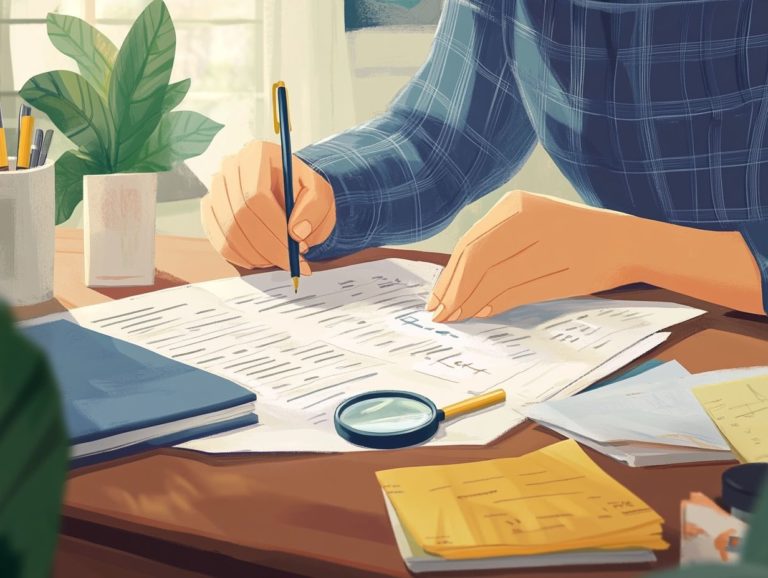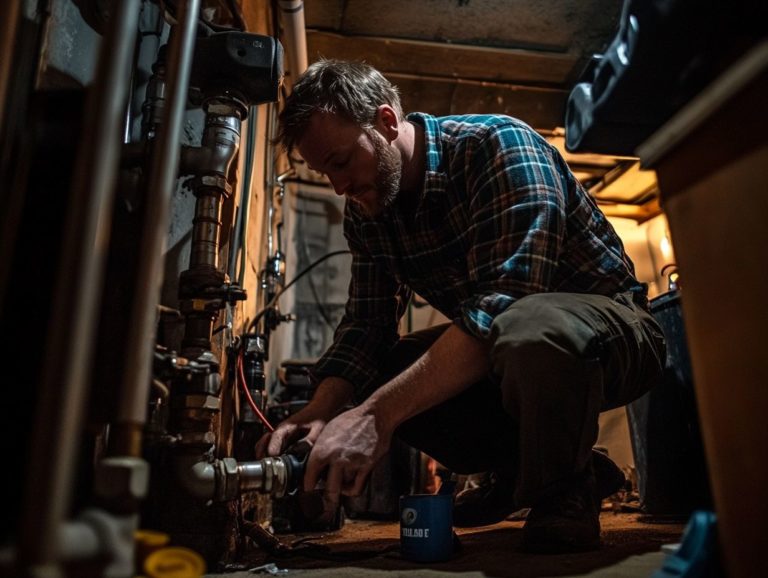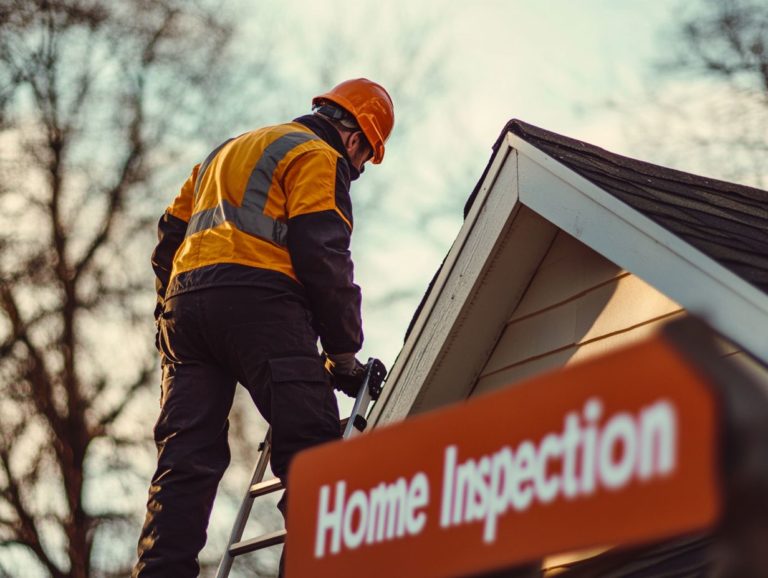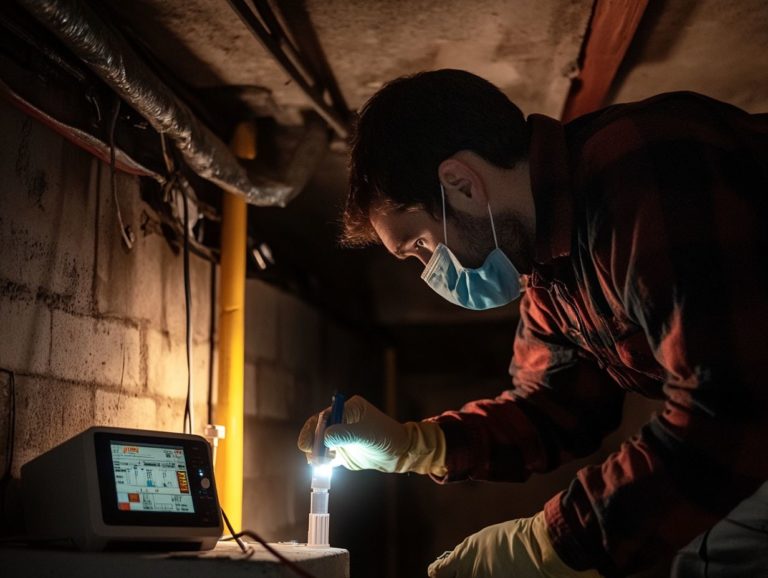The Importance of Home Inspections in Real Estate Deals
When you embark on the journey of buying or selling a home, grasping the nuances of a home inspection is crucial.
This guide will enlighten you on the essence of a home inspection, emphasizing its importance in real estate transactions. You ll uncover the advantages it offers to both buyers and sellers, delve into the critical areas that inspectors typically examine, and identify common issues that may surface.
You ll also find valuable tips on selecting a trustworthy inspector and navigating the often tricky waters of repair negotiations, ensuring you re thoroughly prepared for your real estate adventure.
Contents
- Key Takeaways:
- What is a Home Inspection?
- Why Home Inspections are Important in Real Estate Deals
- What to Expect During a Home Inspection
- Common Issues Found During Home Inspections
- How to Choose a Reliable Home Inspector
- Negotiating Repairs Based on Inspection Results
- Frequently Asked Questions
- What is the role of home inspections in real estate deals?
- Who is responsible for scheduling a home inspection?
- How long does a home inspection usually take?
- What are the common issues that home inspectors look for?
- Do I need to be present for the home inspection?
- What happens if issues are found during the home inspection?
Key Takeaways:

A home inspection provides essential insights into a property’s condition. Understanding the importance of home inspections in real estate transactions helps buyers and sellers make informed decisions, ensuring a smooth transaction.
- A home inspection is a crucial step in any real estate transaction.
- Both buyers and sellers benefit from home inspections, ensuring a fair and transparent deal.
- When choosing a home inspector, consider experience, qualifications, and references. Don t hesitate to ask questions about their process and findings.
What is a Home Inspection?
A home inspection is a thorough assessment of a property’s condition, carried out by a qualified home inspector. This evaluation scrutinizes essential aspects such as structural integrity, plumbing, heating, ventilation, and air conditioning systems (HVAC), electrical systems, and safety hazards.
For potential buyers and sellers, this process is a game-changer! It reveals hidden defects that might remain unnoticed during a casual walkthrough. Understanding the role of home inspections in real estate is crucial, as the resulting inspection report becomes a vital instrument in the real estate transaction, shaping negotiations and promoting transparency between the seller and buyer.
Definition and Purpose
A home inspection is essentially a comprehensive examination of a property’s condition, aimed at assessing its overall value and uncovering any potential issues that could impact both buyers and sellers in the real estate market. Understanding the importance of a home inspection for buyers is crucial in making informed decisions.
By receiving a detailed report on the structural integrity, electrical systems, plumbing, and other critical components of a home, you gain a vital tool for decision-making. This inspection helps you truly understand the condition of the property you’re thinking of buying, leading to more informed choices.
For sellers, organizing a pre-inspection can reveal areas for improvement or necessary repairs, ultimately boosting the property s market appeal.
Buyer agents play an essential role in this process, guiding you through the findings and leveraging that information during negotiations to secure the most favorable terms.
Why Home Inspections are Important in Real Estate Deals
Home inspections play a pivotal role in real estate transactions, highlighting the importance of home inspections in real estate deals by offering invaluable insights into a property’s condition.
By conducting a thorough inspection, you enable yourself to make informed decisions, negotiate repair requests effectively, and ultimately influence the purchase price and market value of the home, highlighting the role of home inspections in home sales.
Benefits for Buyers and Sellers
The advantages of home inspections for both buyers and sellers are substantial. You gain a deeper understanding of the property’s condition, can address any necessary repairs, and obtain valuable feedback through customer testimonials regarding the inspector’s quality of service, as highlighted in the role of home inspections in real estate transactions.
For example, when you receive a detailed inspection report, you can leverage those findings to negotiate for essential repairs or credits at closing, potentially saving yourself thousands.
Take, for instance, a couple who purchased a home and used the inspection results to negotiate a $10,000 credit for roofing issues. They wisely invested that credit into upgrades that significantly boosted the home’s value.
On the flip side, if you’re selling, conducting a pre-listing inspection can expose hidden problems, allowing you to make repairs in advance and leading to a smoother transaction.
One seller discovered through an inspection that their HVAC system was on the brink of failure. By replacing it before listing, they attracted more buyers and achieved a quicker sale at a higher price.
Ready to take the next step? Schedule your home inspection today or consult with a real estate expert!
What to Expect During a Home Inspection
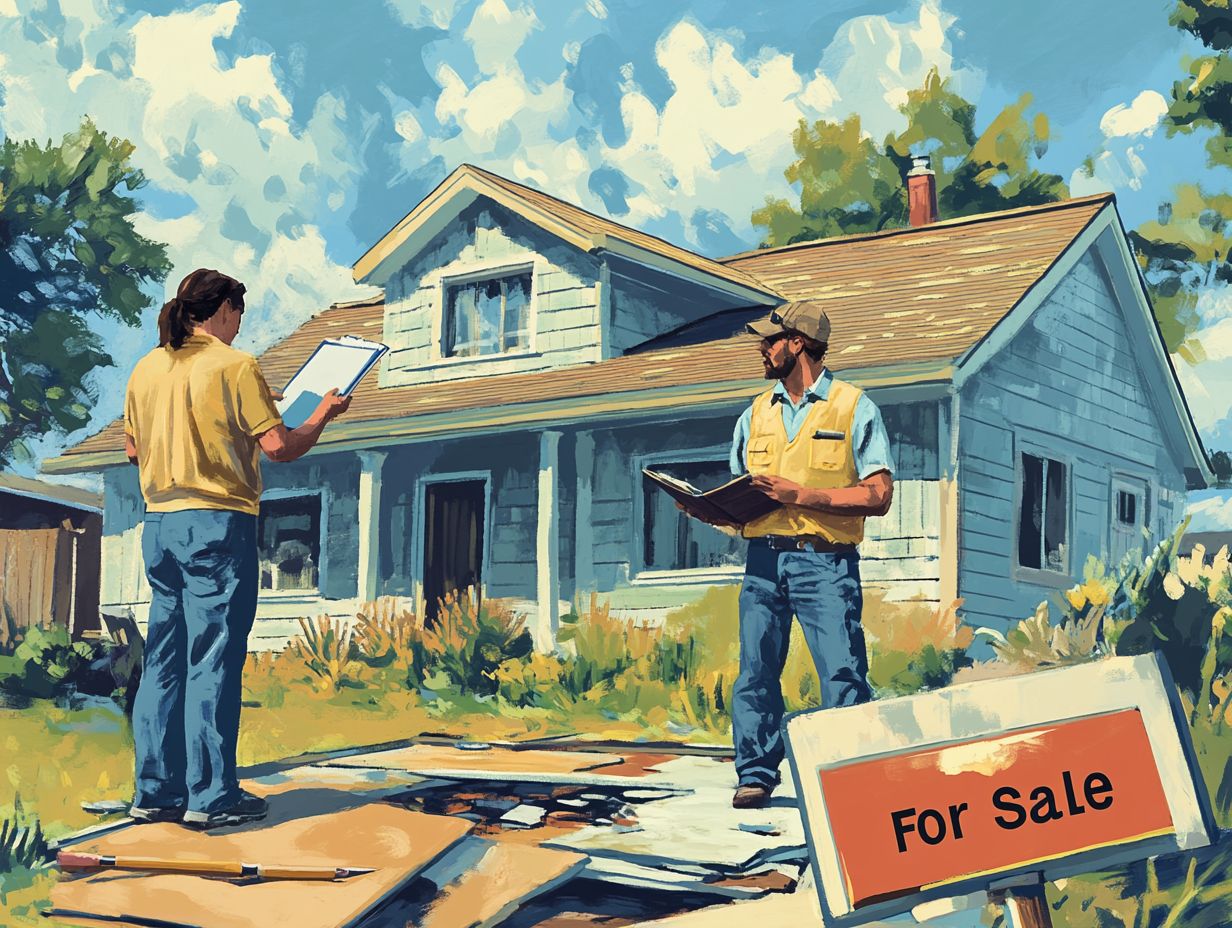
During a home inspection, you can expect a careful check of the property, guided by a detailed checklist. This includes key areas like the roof, foundation, safety compliance, and overall structure.
The process ends with a detailed report outlining findings and necessary repairs.
Process and Key Areas of Inspection
The home inspection involves a close examination of key areas such as heating, ventilation, and air conditioning systems, electrical systems, plumbing, and structural components. This thorough assessment helps you understand the property’s condition.
The inspector checks these areas to uncover potential issues that could lead to costly repairs later. For example, they’ll look at HVAC systems’ age and maintenance history to see if replacements are needed soon.
Electrical inspections focus on wiring and safety features. Outdated systems can pose fire risks. Plumbing checks identify leaks or water damage, while structural evaluations assess the foundation and roof’s integrity.
As a buyer, review prior maintenance records to stay prepared. Sellers can improve their chances of a smooth inspection by fixing minor repairs beforehand.
Common Issues Found During Home Inspections
Home inspections often reveal common issues like structural problems, electrical concerns, plumbing defects, foundation troubles, and roof damage. Addressing these issues is crucial for the property’s health and safety.
Structural, Electrical, and Plumbing Problems
Structural, electrical, and plumbing problems are critical concerns to watch for. These can create safety hazards and lead to costly repairs if ignored.
For instance, a compromised foundation can cause severe structural issues, risking collapse and resulting in repair costs that may exceed tens of thousands of dollars.
Outdated electrical systems may not meet modern safety standards and can increase fire risks. Plumbing issues, from leaky pipes to faulty water heaters, can cause water damage and mold growth, leading to steep repair expenses.
Identifying these concerns early can help during negotiations. This information can lead to a lower purchase price or necessary repairs before closing, keeping your investment secure.
How to Choose a Reliable Home Inspector
Choosing a reliable home inspector is key for a successful home inspection. Their service quality affects the inspection report and overall real estate transaction, making it essential to grasp the importance of home inspections.
Factors to Consider and Questions to Ask
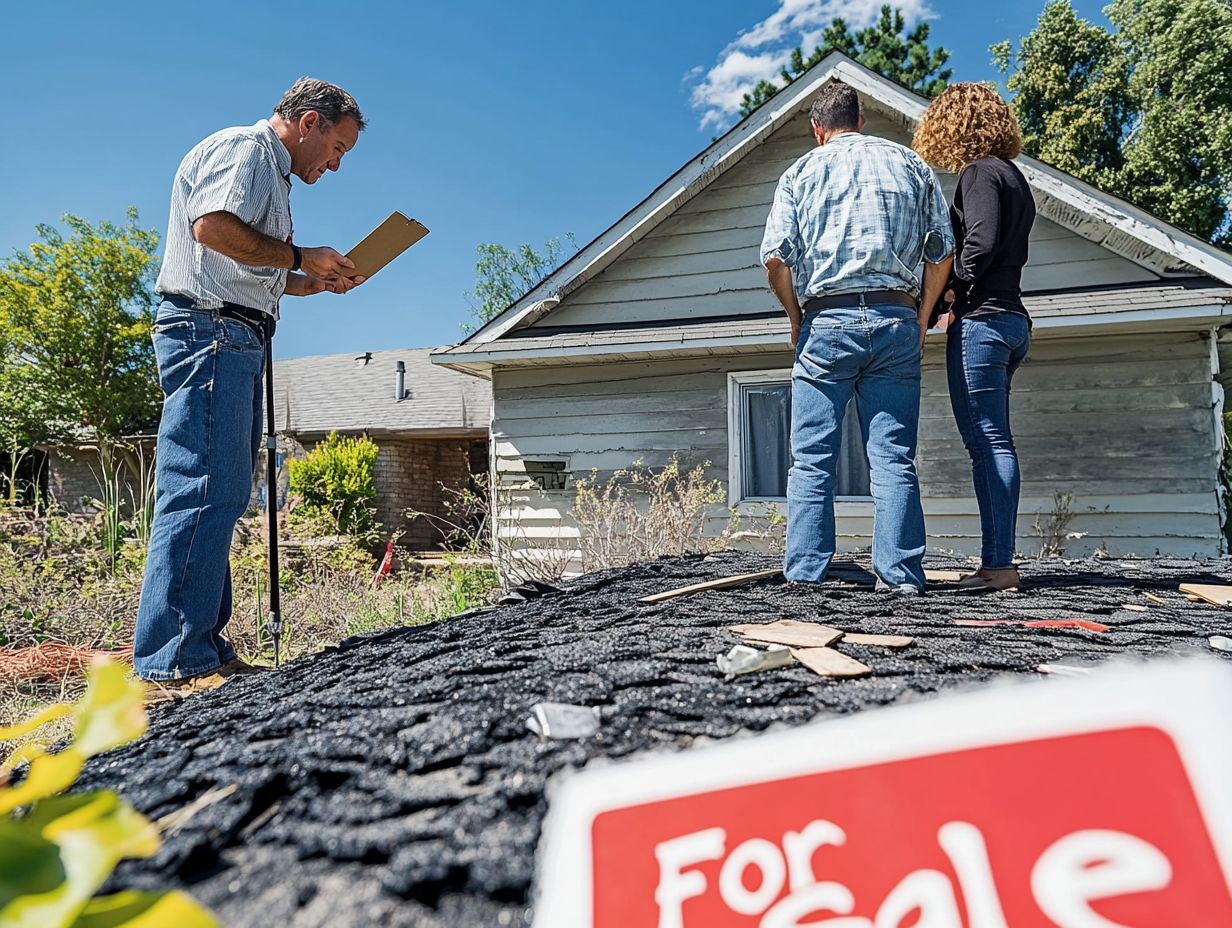
When choosing a home inspector, consider their experience, inspection process, and service quality. Trust and reliability are essential.
Buyers and sellers should look into the inspector’s qualifications, training, and certifications. Also, check their familiarity with the type of property you re dealing with.
Ask about their reporting style and how they communicate findings. Building rapport is important; feeling comfortable asking questions enhances your understanding of the property’s condition.
Lastly, request references from past clients for insights into their experiences with the inspector.
Negotiating Repairs Based on Inspection Results
Negotiating repairs based on inspection results is vital in your real estate transaction.
This process allows you, as a buyer, to request specific repairs and negotiate credits. This ensures that the seller is accountable for any necessary repairs highlighted in the inspection findings.
Harness the power of your inspection findings to strengthen your position. Establish transparency with the seller and maintain open communication throughout the negotiation process.
By prioritizing issues based on severity, you can streamline discussions and focus on what truly matters. Major safety concerns like electrical or plumbing hazards should always take precedence over cosmetic fixes.
Using inspection findings provides a solid foundation for discussions, helping you clearly articulate the rationale behind each request. Understanding the seller’s perspective fosters a more empathetic dialogue, creating pathways for constructive conversation.
Recognizing opportunities for compromise, such as agreeing on a partial credit or scheduling repairs before closing, can lead to more productive negotiations. This approach ultimately results in a satisfactory resolution for everyone involved.
Frequently Asked Questions
What is the role of home inspections in real estate deals?
Home inspections are an essential step in the home buying process. They involve a professional inspection of the property to identify potential issues or defects affecting the property’s value or safety, highlighting the importance of pre-purchase home inspections.
This process allows buyers to make informed decisions about their purchase and negotiate repairs or price adjustments.
Who is responsible for scheduling a home inspection?
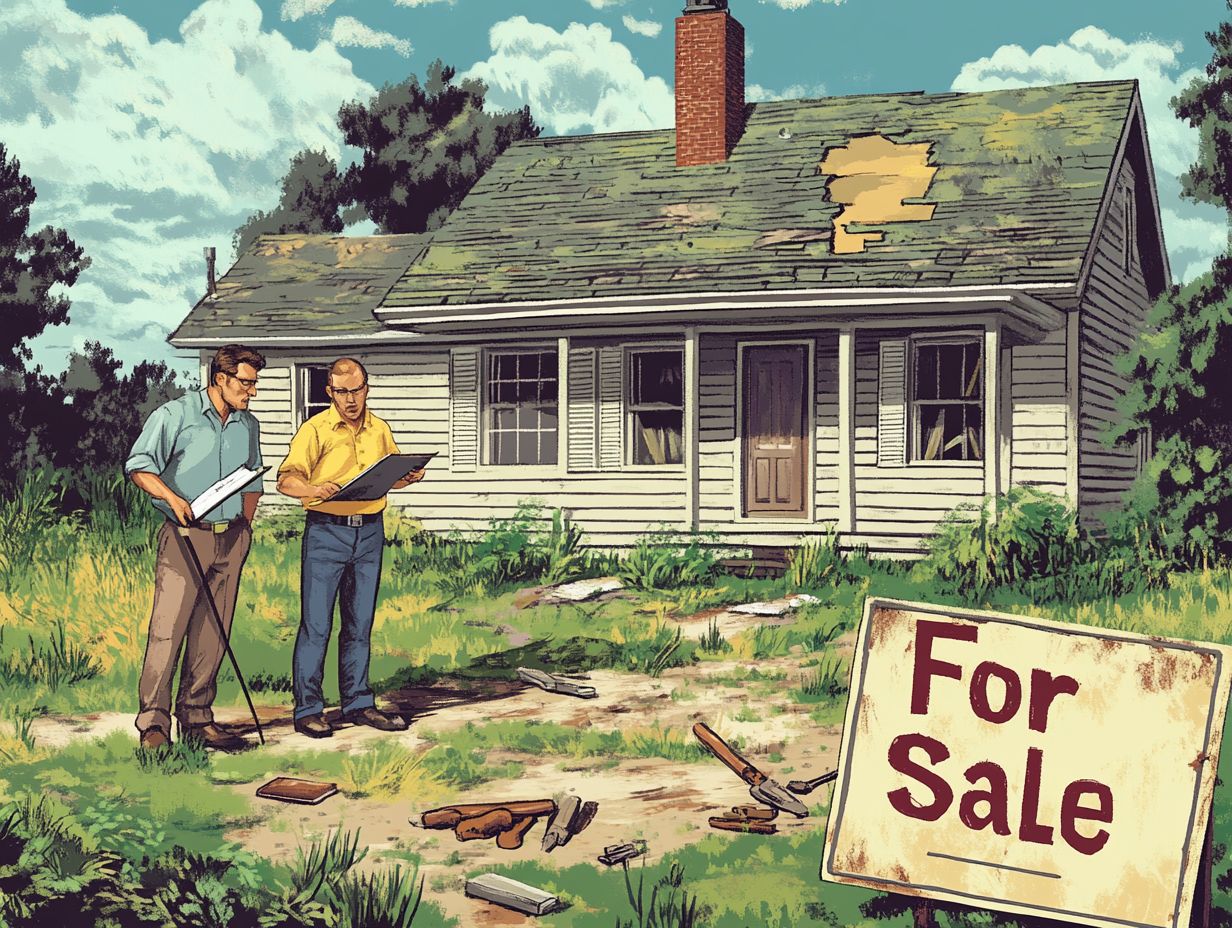
Typically, the buyer is responsible for scheduling a home inspection as part of their careful steps before buying a home. However, the seller may also choose to have a pre-listing inspection done to identify any potential issues before putting their home on the market.
How long does a home inspection usually take?
The length of a home inspection can vary depending on the size and condition of the property. On average, a thorough inspection can take 2 to 4 hours. Larger or more complex properties may take longer.
What are the common issues that home inspectors look for?
Home inspectors typically check for structural and mechanical issues. Common concerns include faulty electrical or plumbing systems, water damage, pest infestations, and structural defects. They also look for safety hazards, such as mold or asbestos.
Do I need to be present for the home inspection?
While it is not required, it is highly recommended that buyers attend the home inspection. This allows them to see any issues firsthand and ask questions to the inspector. Attending also provides a better understanding of the property and what repairs may be needed.
What happens if issues are found during the home inspection?
If issues are found during the home inspection, the buyer can negotiate with the seller to have repairs made or adjust the purchase price. In some cases, the buyer may also choose to walk away from the deal if the issues are too severe or costly to address.

